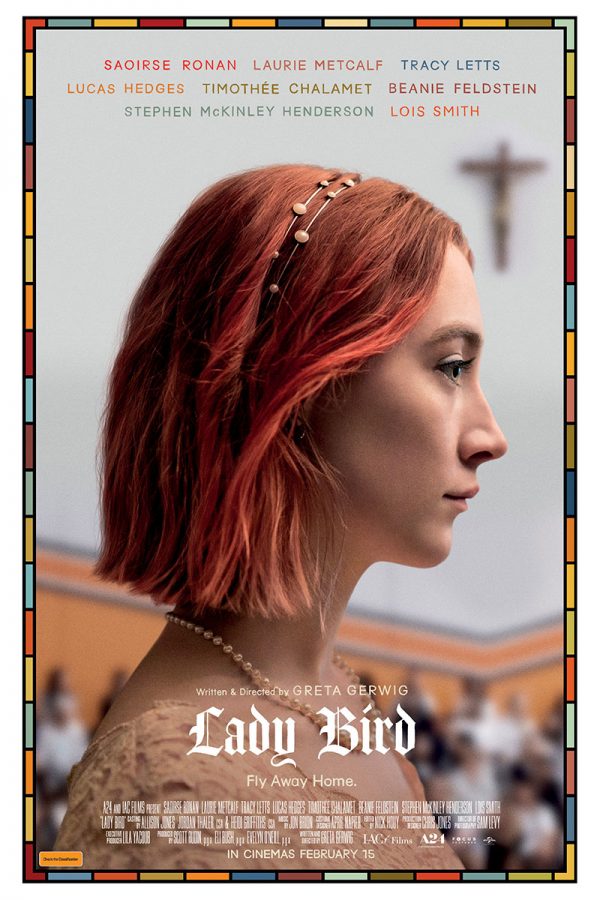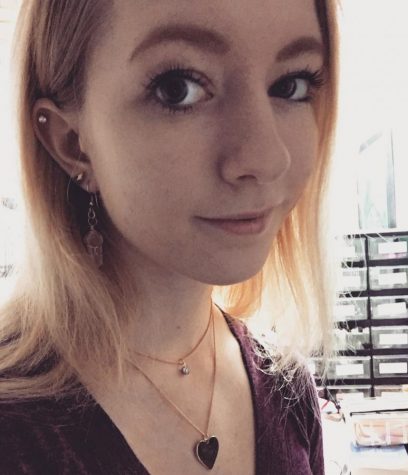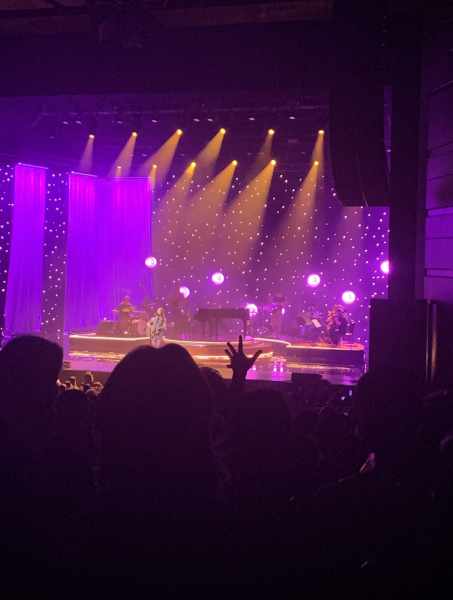Oscar Nominated ‘Lady Bird’ Soars
Movies documenting the teenage experience are often labeled as shallow and unrealistic, condemned for how they glorify poor self-esteem and set unreachable standards for their young and impressionable audiences. Unfortunately, these harsh designations have a basis in reality — although enjoyable, many of the films intended for a young-adult demographic romanticize heavy subject matter. Another controversy surrounding the subgenre is the prevalence of adults being cast in underage roles to protect minors, and while this is necessary and important, the roles are often sexualized and retouched. Furthermore, many such films rely heavily on prescribed gender roles, reserving coming-of-age and adventure stories for young men and romance for young women. The history behind Greta Gerwig’s semi-autobiographical film Lady Bird, along with it being nominated for best picture in the 2018 Oscar ceremony, distinguishes it as a momentous stride forward in depictions of adolescents, specifically girls, and their experiences.
Lady Bird follows Christine “Lady Bird” McPherson (played by Saoirse Ronan) through her senior year at a Catholic high school in northern California. It details the difficulties of transitioning into adulthood through her complicated relationship with her mother, changing friendships, first romances, peer pressure, and a competitive education system. Because of the immense amount of experiences packed into its hour-and-a-half runtime, the film defies a single genre label in much the same way that real life does, and that’s one of the key factors to it that makes it so universal despite the specificity of the scenes portrayed. The authenticity of the actors’ performances — including the natural flow of dialogue and the absence of makeup used to touch up the teen characters’ players — gives it a warmth and inspires nostalgia in the audience akin to reliving a memory. Tropes common in high school movies are briefly introduced and then flipped on their heads so subtly and with such respect to the characters subject to them that each moment successfully mimics the realization of having formed a false first impression.
Gerwig has created a loving step back in time out of her semi-autobiographical story so earnestly and with such care that it carries with it truths transcending generational gaps and misunderstandings. Having scored the title of 2017’s second-best theater average and the highest-ever for a film in limited release directed by a woman, I cannot stress enough how important this movie and its legacy is. I would urge anyone growing tired of overused exaggerations and harmful stereotypes used in teen movies to go out and support Lady Bird — I can promise that you’ll have a lovely time, while you’re at it.







